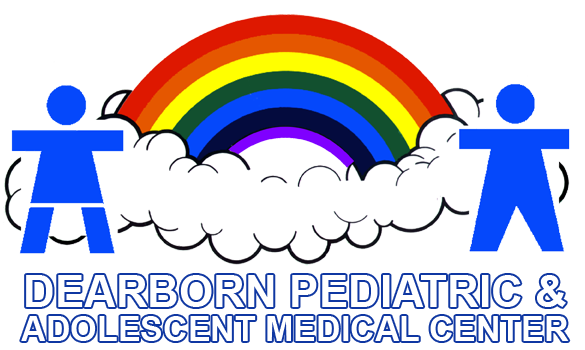
Adolescent Healthcare
 Adolescence is a time of fluctuation. Changes are happening in growing bodies that not only affect the body, but the mind and emotions as well. No longer children, but not yet adults, teenagers are lost in a limbo of swirling hormones whose levels can change rapidly. They and their environment are evolving daily, physically, emotionally, and psychologically. Their healthcare needs are unique and often urgent.
Adolescence is a time of fluctuation. Changes are happening in growing bodies that not only affect the body, but the mind and emotions as well. No longer children, but not yet adults, teenagers are lost in a limbo of swirling hormones whose levels can change rapidly. They and their environment are evolving daily, physically, emotionally, and psychologically. Their healthcare needs are unique and often urgent.
Adolescents sometimes engage in risk-taking behaviors, which can lead to serious illness, pregnancy, accidents, injuries, and death. Their lifestyles do not generally include healthy diets and regular exercise except for physical education at school and sports. Obesity is also a major problem in this age group. They need to have regular checkups, even if they appear healthy. Dr. Fakih will discuss a wide variety of topics with them that might help them make the best decisions.
What are the health care needs of a healthy teenager?
Basically there are four requirements for each visit to the pediatrician – physical examination, immunizations, screening, and counseling.
Immunizations depend on whether the child is up to date.
 Tetanus, Diphtheria and Pertussis (TDAP) – This series should be completed with the final dose at age 11 or 12. These diseases are deadly and can be prevented with vaccinations.
Tetanus, Diphtheria and Pertussis (TDAP) – This series should be completed with the final dose at age 11 or 12. These diseases are deadly and can be prevented with vaccinations.- Human Papilloma Virus – Three injections are recommended at ages 11 or 12 prevent your children from developing cancers caused by this virus, such as cervical and penile cancers and genital warts. If your child is older than 12, the vaccination can be given up to age 26, but the earlier the better for protection. All children need to be protected.
- Meningococcal Conjugate Vaccine (MCV4) – Meningitis causes brain damage and can be lethal. This bacteria spreads easily, especially in crowded environments such as schools, college dorms, and military bases. One dose is given at 11 or 12 years and a booster at 16.
- Influenza – This injection should be given yearly. Not only is flu a miserable experience, it does occasionally kill.
- Catch up – If your child missed any of the routine vaccinations given early in life, this is the time to make sure they are fully protected. MMR (Measles, mumps and rubella), IPV (Inactivated polio vaccine), Varicella (Chickenpox), Hepatitis A and B vaccines are the immunizations that should be completed by this time.
Physical examination – Dr. Fakih will spend time talking to your child privately before the exam and the conversation will be confidential. The doctor has to establish a relationship based on trust and needs to obtain truthful responses to medical questions that he/she may not be openly willing to share with parents and guardians.
 Measurements – Height, weight, blood pressure, and pulse rate.
Measurements – Height, weight, blood pressure, and pulse rate.- Head and neck – The eyes (including vision), ears (hearing), teeth, mouth, throat, and the neck will all be examined, including the thyroid.
- Chest – The doctor will listen to the heart and lungs and check the breasts of both males and females.
- Abdomen – Feeling the abdomen can reveal abnormalities of the liver and other organs.
- Bones and joints – The doctor will be looking for any evidence of scoliosis of the spine or muscle and tendon weakness.
- Neurological and psychological exam – During the physical, the doctor will be evaluating for any abnormalities in both areas.
- Skin – Looking for worrisome skin lesions, as well as nail and hair problems, can help prevent both major and minor problems.
- Genital exam – Boys need to be evaluated for testicular cancers and hernias. Cancer of the testicle is the most common malignancy in young men. The doctor will teach your son what to look for in self-examination. Pelvic exams on girls are not routine, but may be deemed necessary.
Screening for disease and depression
- Anemia and cholesterol – Blood work should be done at age 11 or 12 and repeated between 16 and 18.
- Sexually transmitted diseases and HIV – Screening depends on the history. Any sexually active teenager needs to be evaluated.
- Tuberculosis – TB testing should be done if any symptoms or concerns are raised.
- Psychological – Depression is common in adolescents and suicide is one of the highest causes of death in this age group. The doctor will be evaluating your child for other psychological concerns as well.
Counseling
Dr. Fakih and her team are experts in identifying problems such as risk-taking behavior, depression, alcohol, and drug use in teenagers. Each visit gives them an opportunity to discuss making intelligent, safe, and wise choices. They will also discuss nutrition, diet, exercise, smoking, sexual activity, alcohol, and drugs with your child, giving them information they need to make safe choices in their lives.
Help protect your children with yearly checkups by Dr. Fakih. Protection is a lot more than just a physical exam.

Dearborn Pediatric & Adolescent Medical Center
2547 Monroe St
Dearborn, MI 48124
Phone: (313) 791-8300
Fax: (313) 791-8302
Email: info@dearbornpediatric.com
Hours
Monday - Friday 9:00AM - 3:00PM
By Appointment Only NO WALK-INS


